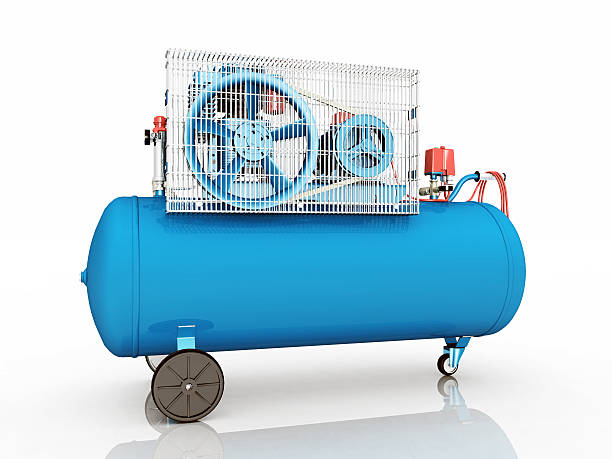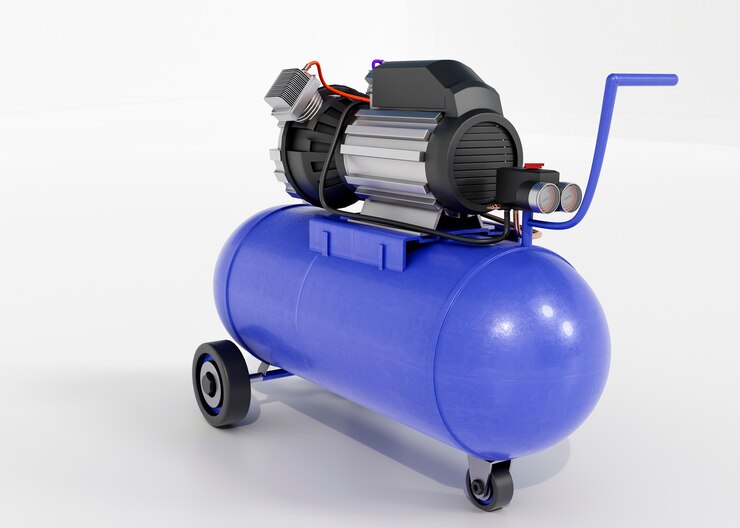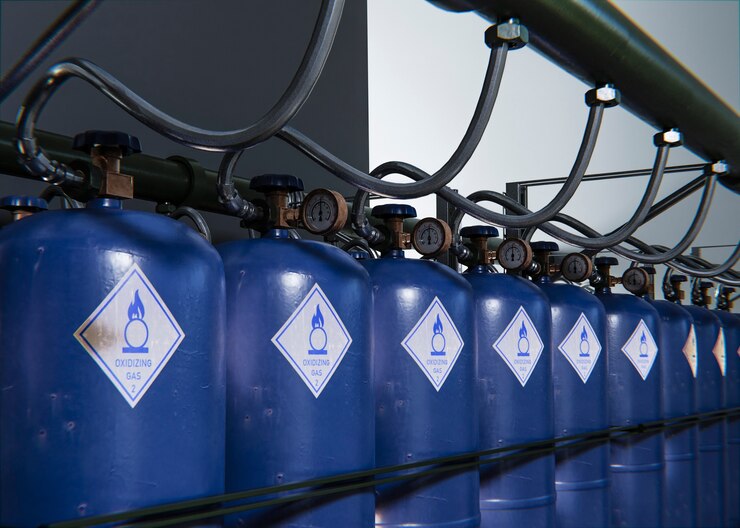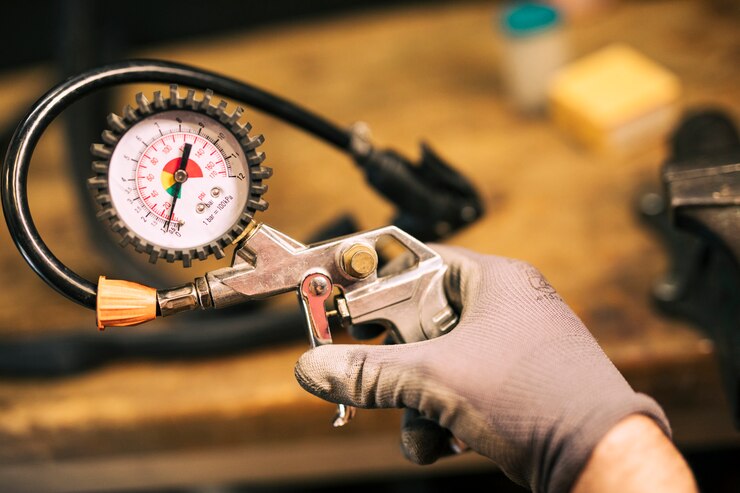Benefits of Ammonia Reciprocating Compressor
The Power of Efficiency: A Comprehensive Guide to Ammonia Reciprocating Compressors
Reliable and effective cooling systems are essential to the commercial and industrial sectors. Ammonia reciprocating compressor is unique in this field since they are a tried-and-true technology with a multitude of uses. This article explores the realm of these reciprocating compressors, giving you the information you need to comprehend their uses, advantages, and selection and maintenance factors.
Understanding the Workhorse: Functionality of Ammonia Reciprocating Compressors
Ammonia reciprocating compressor uses a piston-driven mechanism to compress ammonia gas. They are often referred to as positive displacement ammonia compressors or reciprocating ammonia refrigeration compressors. This compressed gas is essential to refrigeration systems because it absorbs heat from the surrounding air through condensation and evaporation. Let’s dissect the underlying idea:
- Intake:
Low-pressure ammonia vapour from the evaporator is drawn in by the compressor.
Compression: The vapour is compressed by the piston, raising its temperature and pressure.
- Discharge:
Next, the compressor releases the hot, high-pressure ammonia gas.
- Condensation:
The hot ammonia gas in the condenser turns back into a high-pressure liquid by releasing its heat into the surrounding air.
- Expansion Valve:
After passing through an expansion valve, the liquid ammonia experiences a drop in temperature and pressure.
- Evaporation:
As the cool, low-pressure ammonia liquid enters the evaporator, it takes in heat from the air and evaporates once more.
- Cycle Repeats:
This cycle never ends, making it possible to remove heat effectively for a variety of uses.
The Cool Workhorses: Applications Where Ammonia Reciprocating Compressors Shine
When it comes to commercial and industrial cooling, these reciprocating compressors are the best. Many applications rely on these dependable and effective workhorses to maintain low temperatures and seamless operations. Let’s examine the several sectors in which ammonia compressors are essential:
Industrial Cooling: Experts in Temperature Control
- Food and Beverage Production:
These compressors are crucial for food safety and quality control, from maintaining ideal storage conditions for frozen items to guaranteeing constant temperatures for beer production.
- Chemical Manufacturing:
In a variety of chemical reactions, precise temperature control is essential. The dependable cooling required for secure and effective chemical processing is supplied by these compressors.

Commercial Refrigeration: Maintaining the Temptation
- Supermarkets:
Envision a world without enough refrigeration for fresh vegetables and dairy items! Ammonia reciprocating compressors keep supermarkets at the ideal temperature, ensuring food safety and quality for customers.
- Storage and Distribution:
For a variety of items, it is essential to keep storage and distribution areas consistently cool. The consistent chilling required to guard against spoiling and maintain product integrity is supplied by these compressors.
- Ice Rinks:
Ideal ice conditions are essential for a good skating experience. Reciprocal compressors that use ammonia are essential for cooling the rink’s surface and preserving the best possible ice quality.
Beyond the Explicit: Customized Uses
- Process Cooling:
Precise temperature control is required in certain industrial processes, such as the production of power and oil refinement. For these specific applications, ammonia reciprocating compressors provide dependable cooling solutions.
- District cooling systems:
These systems encourage energy efficiency by distributing chilled water to several buildings. These massive cooling networks may be powered in part by these compressors.
The Efficiency Edge: Benefits of Utilizing Ammonia Reciprocating Compressors
Ammonia reciprocating compressor are particularly notable in the field of commercial and industrial refrigeration due to their dependability and efficiency. But why are they such a strong option in the first place? Let’s examine the primary advantages that have made them indispensable in a range of cooling applications:
Energy Champions: Maintaining Comfort While Conserving Energy
- High Efficiency:
The energy-to-cooling power conversion efficiency of ammonia reciprocating compressors is remarkably high. This results in cheaper running expenses and a smaller environmental impact for your company.
- Decreased Emissions:
Ammonia has fewer overall greenhouse gas emissions than some alternative refrigerants, which makes it a more environmentally friendly cooling option.
Constructed to Last: Dependability in Durability
- Sturdy Design:
With sturdy construction materials and a well-proven design, these compressors are built to last a lifetime. This equates to less downtime and dependable performance from your vital cooling systems.
- Minimal Maintenance:
Ammonia reciprocating compressors are noted for having a relatively basic construction, which results in cheaper maintenance costs compared to more complicated compressor technologies, even if regular maintenance is still necessary.
Flexible Remedies for Varying Requirements
- Broad Capacity Range:
These compressors come in multiple sizes and may accommodate a wide range of cooling needs. There is a compressor to suit your unique needs, whether they are for large-scale industrial operations or tiny cold storage units.
- Mature Technology:
Their well-established technology means that parts are easily accessible and that they have a plethora of knowledge about upkeep and troubleshooting. This increases the longevity of your investment and guarantees simpler maintenance.
Beyond the Fundamentals: Extra Benefits
- Natural Refrigerant:
Ammonia is a naturally occurring refrigerant that, in the event of a leak, poses a smaller risk to the environment than certain synthetic refrigerants.
- Safety Record:
When used properly and with the right training and safety procedures in place, ammonia reciprocating compressors provide a dependable and safe cooling option.
Choosing Your Cooling Champion: Considerations for Selecting the Right Ammonia Reciprocating Compressor
In the world of industrial and commercial cooling, these reciprocating compressors are workhorses, but choosing the best one for your particular requirements takes considerable thought. The following are some important things to remember:
Evaluating Requirements: Cooling Capacity Is Crucial
- Find Your Cooling Load:
The first thing to do is figure out how much cooling power your application needs. This includes things like the area that needs to be cooled, the ideal temperature, and the amount of heat produced in the area.
- Matching Capacity:
Select a compressor whose cooling capability is higher than the load you’ve estimated. This guarantees that the compressor can sustain steady temperatures and meet peak cooling demands.
The Efficiency of Single-Stage vs. Two-Stage Tailoring
- Single-Stage for Moderate Needs:
Single-stage ammonia reciprocating compressors provide a more straightforward and maybe more affordable option for applications requiring low-to-medium temperature cooling (about -20°C).
- Two-Stage for Deep Chilling:
Two-stage compressors offer improved efficiency by reaching these extremes in a more phased and energy-efficient manner. This is especially useful if your application calls for very low temperatures (below -40°C).
Oil or Not at All? The Lubricant Amount
- Oil-Free for Purity:
Oil-free ammonia reciprocating compressors remove the possibility of oil contamination in the cooling system for applications needing high purity, such as food processing or pharmaceutical manufacturing.
- Lubricated for Efficiency:
Lubricated compressors provide an affordable option in less demanding applications. By lowering wear and friction, the oil contributes to smooth functioning. But take into account prospective oil changes and disposal requirements.
Brand Image: Credibility Counts
- Put Quality First:
Go with reliable brands that are recognized for producing excellent ammonia reciprocating compressors. This guarantees dependable operation, robustness, and easily accessible post-purchase assistance.
- Guarantee and Support:
Think about things like the brand’s warranty coverage and the accessibility of trained service professionals. This guarantees that you will have comfort if something goes wrong.
Keeping Your Cool Champion Thriving: Essential Tips for Maintaining Ammonia Reciprocating Compressors
Industrial and commercial refrigeration workhorses are ammonia reciprocating compressor. To function at their best, though, they need the same upkeep as any elite athlete. The following crucial advice will help you make sure your ammonia reciprocating compressor operates at peak efficiency and lasts a long time:
Regular Inspections: Being Alert is Essential
- Plan Frequent Checkups:
To find possible problems before they get worse, set up a regular inspection program. Usually, this entails visually checking for leaks, loose parts, and appropriate oil levels (if any).
- Pay Attention:
Keep an ear out for any strange sensations or noises coming from the compressor. These may be the first signs of impending issues that require attention.
Oil Changes: Maintaining Lubrication
- Observe the Manufacturer’s Recommendations:
Pay close attention to the recommended oil replacement intervals for lubricated compressors provided by the manufacturer. Your compressor will last longer if you use the right oil and change it frequently to maintain enough lubrication, reduce wear and friction, and decrease wear.
Replacing Filters: Breathe Easy for Best Results
- Don’t Forget the Filters:
As directed by the manufacturer, change the air and oil filters regularly. Clear filters keep dust and debris out of the system, ensuring optimal performance and smooth operation.
Qualified Assistance: When Knowledge Counts
- Call in the Experts:
Rely on certified and experienced experts with experience servicing ammonia reciprocating compressors for extensive repairs or overhauls. Their specific expertise guarantees correct repairs and reduces the possibility of additional harm.
Upholding Safe Practices: An Important Reminder
- Safety First, Every Time:
Because ammonia is a hazardous gas, using ammonia reciprocating compressors requires taking all necessary safety precautions. Make sure the people using the compressor are properly outfitted with personal protective equipment (PPE) and have received training on safe handling techniques.
- Leak Finding and Fixing:
Address any leaks in the ammonia system that are found right away. Not only do leaks reduce cooling effectiveness, but they also present a risk to public safety.
Conclusion:
For a wide range of applications, its sturdy construction and dedication to quality provide dependable performance and effective cooling. Whether you need high capacity or oil-free operation, we have a variety of compressors to meet your requirements. Invest in an LEIYAO compressor and enjoy the peace of mind that comes from dealing with a reputable company that produces excellent cooling solutions.



